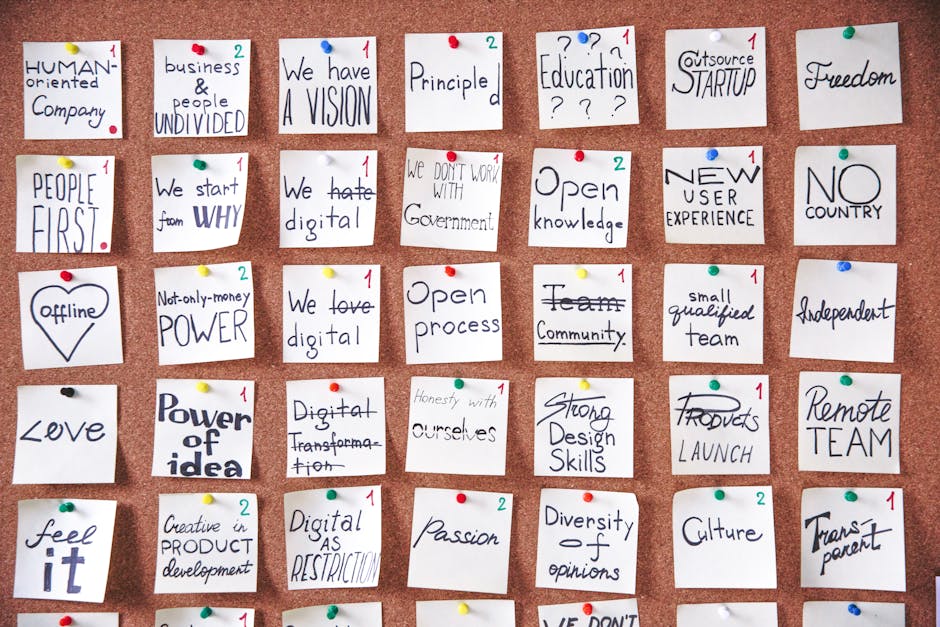In-Kind Software Development Services For Equity: The Benefits And Challenges
Did you know that over 90% of start-ups fail within their first three years? As an aspiring entrepreneur, you’re constantly on the lookout for innovative ways to give your start-up the best chance at success.
One such approach is considering in-kind software development services for equity. This strategy allows your young company to obtain crucial technical expertise without straining your limited budget by exchanging a portion of ownership in return.
While this method has its share of benefits, it’s not without challenges. In this article, we’ll delve into the intricacies of in-kind development agreements and equity arrangements, highlighting both their advantages and potential pitfalls.
We’ll also explore strategies for alining expectations and goals, managing conflicts of interest, and determining whether this arrangement is suitable for your specific start-up. By understanding these complexities, you can make informed decisions about leveraging in-kind software development services to propel your business into the realm of sustained innovation and growth.
Advantages of In-Kind Development Agreements

So, you’re considering an in-kind development agreement? Let’s dive into the advantages that could make this a game-changer for your business.
One of the most significant in-kind benefits is that it can help you save on costs while still receiving top-notch software development services. This arrangement allows you to exchange equity in your company for development services, which means you don’t have to spend as much cash upfront. By doing so, you can allocate those savings towards other aspects of your business like marketing or hiring additional team members.
Another advantage stems from the motivation and commitment developers exhibit when they’re invested in the project through equity ownership. Since their success is tied directly to your company’s growth and valuation, these developers are more likely to work diligently to create high-quality software that will benefit both parties involved.
Furthermore, the presence of development pitfalls can be mitigated by having a vested interest in ensuring efficient and effective solutions. However, it’s crucial to keep in mind that not every developer will be a perfect fit for such an arrangement, making it essential for both parties involved to communicate clearly about expectations from the start.
As your company grows and progresses through various stages of funding or profitability, navigating equity agreements may become increasingly complex – but with proper planning and sound legal advice, these challenges can be managed effectively. The key lies in finding a balance between maintaining control over your company’s direction and allowing developers enough incentive to contribute meaningfully toward its success.
In our next section about ‘navigating equity agreements,’ we’ll delve deeper into how this delicate balance can be achieved while reaping maximum benefits from an in-kind development agreement.
Navigating Equity Agreements

Navigating equity agreements can feel like walking through a maze, but with the right guidance and understanding, you’ll find your way to success. Equity negotiation is a crucial aspect of any in-kind software development service agreement, as it determines how much ownership each party will have in the final product.
To avoid potential agreement pitfalls, it’s essential to be well-prepared going into these negotiations by arming yourself with knowledge and a clear understanding of your goals. Here are some tips to keep in mind:
-
Know your worth: Before entering equity negotiations, make sure you have a clear understanding of the value that your software development services bring to the table. This will provide you with leverage during discussions.
-
Research market standards: Familiarise yourself with industry norms for similar agreements to ensure that you’re not giving away too much equity or undervaluing your contribution.
-
Be prepared for compromise: While having a preferred outcome in mind is important, also recognise that successful negotiations often involve concessions on both sides.
-
Protect your interests: Ensure that the final agreement includes provisions addressing intellectual property rights and other legalities so that there are no surprises down the road.
As you embark on this journey of forging an equitable partnership, remember that alining expectations and goals between both parties is essential for long-term success. By being aware of common pitfalls and approaching negotiations strategically, you’ll be better positioned to create an agreement that benefits all involved parties fairly while fostering innovation within your project.
Now let’s explore further how ensuring alined expectations and goals can contribute towards achieving mutually beneficial outcomes throughout the life cycle of your partnership, as well as fostering long-term collaboration and trust between all stakeholders.
Alining Expectations and Goals

It’s crucial to ensure everyone’s on the same page when it comes to expectations and goals, as this paves the way for a harmonious, successful partnership. Expectation communication is key in any business relationship, but even more so when developing software in exchange for equity. Misaligned expectations can lead to dissatisfaction, frustration, and potential legal issues down the line.
To avoid these pitfalls, both parties should be transparent about their objectives and anticipated outcomes from the very beginning. Goal synchronisation ensures that both sides are working towards common milestones while respecting each other’s interests.
One effective way of alining expectations and goals is by establishing clear communication channels between all stakeholders involved in the project. This includes developers, designers, management teams, and investors. Regular meetings or cheque-ins help maintain open lines of communication and provide opportunities for addressing concerns or adjusting strategies as needed. Additionally, clearly defining roles and responsibilities within the partnership allows each party to focus on their respective tasks while minimising confusion or overlap.
As you progress through your software development project with an equity-based agreement in place, remember that maintaining alined expectations and goals will be fundamental not only during initial negotiations but throughout the entire collaboration process as well. By fostering a culture of transparency and open dialog amongst all stakeholders involved in your project – including regular reviews of progress against shared objectives – you’ll create a strong foundation for success together on this innovative endeavour.
As we move forward into discussing managing conflicts of interest, the next section will delve into ways to handle situations where competing priorities may arise during your collaboration journey. This ensures that both parties continue to work harmoniously and effectively towards achieving the shared goals, while simultaneously maintaining trust, open communication, and a positive working relationship.
Managing Conflicts of Interest

In the dance of collaboration, managing conflicts of interest becomes a delicate yet essential two-step, ensuring harmony prevails and success blossoms. As you navigate through in-kind software development services for equity arrangements, it’s crucial to address potential conflicts before they escalate into problematic situations.
Adopting conflict resolution strategies and maintaining open stakeholder communication channels will help preserve your start-up’s innovative spirit while fostering healthy working relationships.
To effectively manage potential conflicts of interest, consider implementing these key practises:
- Establish clear expectations: Set well-defined roles, responsibilities, and performance metrics for each party involved in the partnership.
- Encourage transparency: Promote open dialog between stakeholders about their objectives, concerns, and progress updates on project milestones.
- Implement a robust decision-making process: Ensure that decisions are made based on meritocracy rather than personal interests or biases by incorporating diverse perspectives and data-driven analysis.
- Create a conflict resolution framework: Develop procedures for addressing disputes promptly and constructively to minimise negative impacts on your business operations.
As you strive to mitigate conflicts of interest within your venture’s unique context, it’s vital to remain vigilant in assessing how these dynamics may evolve over time.
Keep an eye out for external factors such as market shifts or regulatory changes that could introduce new complexities into your collaborative ecosystem. This proactive approach will empower you to adapt accordingly without compromising the integrity of your partnerships or stifling innovation within your organisation.
With this solid foundation built upon effective conflict management techniques and mindful stakeholder communication, you can confidently transition into evaluating the suitability for your start-up when considering in-kind software development services for equity arrangements.
Evaluating the Suitability for Your Start-up

As you’re making decisions, it’s crucial to weigh whether your start-up’s unique rhythm alines with the dance of in-kind software development services for equity arrangements. Start-up suitability and equity evaluation are key factors that can determine if such a partnership will lead to a harmonious duet or an offbeat tango.
To assess this compatibility, consider the nature of your business, its scalability potential, and how vital software development is to achieving your goals. Scrutinise your start-up’s core operations; do they rely heavily on technology? If so, partnering with seasoned software developers will not only help accelerate growth but also foster innovation within your organisation.
Furthermore, evaluate how essential sophisticated software solutions are to staying ahead in your industry. A cutting-edge product or platform may be the difference between being a market leader or just another player in the game. Taking into account these considerations and mapping out future prospects should guide you towards determining if an in-kind software development services for equity arrangement is suitable for your start-up.
It’s essential to remember that while such partnerships offer invaluable expertise and resources without upfront costs, they also entail parting with a share of company ownership. Ensure that you’re willing to make this trade-off if it means propelling your start-up forward with innovative technology and strategic collaborations that can redefine success within its domain.
Frequently Asked Questions
How do I determine the fair market value of my start-up’s software development services when negotiating an in-kind development agreement for equity?
Determining the fair market value of your start-up’s software development services when negotiating an in-kind development agreement for equity can be a complex process.
Start by considering your start-up valuation, taking into account factors such as revenue, growth potential, and competitive landscape.
Keep in mind that equity dilution may occur as you allocate shares to the developers providing the in-kind services.
To ensure a fair and accurate valuation, consider engaging an independent third-party expert to assess your start-up’s worth and negotiate terms accordingly.
By doing so, you’ll not only maintain transparency but also foster a collaborative environment that encourages innovation and drives long-term success for all stakeholders involved.
Are there any tax implications or legal considerations for both parties involved in an in-kind software development services for equity transaction?
Imagine the excitement of watching your innovative idea take shape as a skilled software development team works tirelessly to bring it to life. But before you embark on this thrilling journey, be aware of the tax implications and legal considerations that come with in-kind software development services for equity transactions.
Both parties involved should consult with their respective tax advisors and legal counsel to thoroughly understand potential tax consequences. For example, how the IRS views these transactions and whether they’d be considered taxable events. They should also consider any relevant legal documentation needed to protect intellectual property rights, define performance milestones, or outline the scope of work.
By addressing these essential elements upfront, you’ll navigate this complex yet rewarding pathway more confidently. This will allow your groundbreaking venture to flourish while minimising unexpected pitfalls along the way.
How can start-ups protect their intellectual property rights when entering into an in-kind development agreement with a software development provider?
To safeguard your intellectual property rights when entering into a development agreement with a software provider, it’s crucial to address potential intellectual property risks and establish a strong foundation of trust with your development partner.
Begin by conducting thorough due diligence on the provider, verifying their track record and examining past projects’ outcomes. Ensure that you have well-draughted agreements in place, delineating clear ownership terms for all existing and future IP created during the collaboration.
Incorporate detailed confidentiality clauses and non-disclosure agreements to prevent unauthorised sharing or use of your valuable IP assets. Additionally, consider using third-party code escrow services as an extra layer of protection for your proprietary software code in case of disputes or unforeseen circumstances.
By taking these proactive steps, you can effectively mitigate IP-related risks while fostering innovation and nurturing the partnership with your software development provider.
What are some common pitfalls or challenges faced by start-ups when negotiating the terms and conditions of an in-kind development agreement for equity?
Navigating the treacherous waters of negotiation while maintaining an innovative edge can be daunting for start-ups entering into in-kind development agreements.
Common pitfalls or challenges often revolve around equity valuation and negotiation strategies.
When it comes to equity valuation challenges, accurately determining the worth of your start-up’s intellectual property and potential future value becomes crucial, as does assigning a fair value to the software development services provided by your partner. Failing to do so may lead to imbalanced partnerships that undermine your business growth down the line.
Additionally, honing your negotiation strategies is vital when discussing terms and conditions – from setting clear expectations on project scope and deliverables to defining policies around IP ownership and exit clauses.
Ultimately, being well-versed in these areas helps prevent misunderstandings, legal disputes, and financial inefficiencies that could hinder your start-up’s innovative potential in this collaborative endeavour.
How do in-kind software development services for equity arrangements impact the cap table and future investment rounds for a start-up?
As a founder, it’s crucial to understand how in-kind software development services for equity arrangements can impact your cap table and influence future investment rounds.
Cap table impact arises when you allocate equity to the service provider, which dilutes existing shareholders’ ownership percentages accordingly. This may affect your ability to raise capital in subsequent investment rounds, as potential investors will evaluate your company’s valuation and share structure.
Additionally, these arrangements could create challenges if the service provider’s equity stake is perceived as too high or if there are concerns about ongoing support and commitment from the development team.
Striking a balance between attracting top-notch developers with fair equity compensation while preserving enough shares for future investors is essential for driving your start-up towards success and innovation.
Conclusion
In conclusion, in-kind software development services for equity can be a mutually beneficial arrangement when properly executed. However, it’s essential to thoroughly investigate the theory that this approach will truly benefit your start-up before diving in.
Consider the potential advantages and challenges mentioned earlier, and conduct an analytical evaluation of your start-up’s unique situation. Remember, a successful partnership relies on clear expectations, alined goals, and effective conflict management.
Contact us to discuss our services now!
